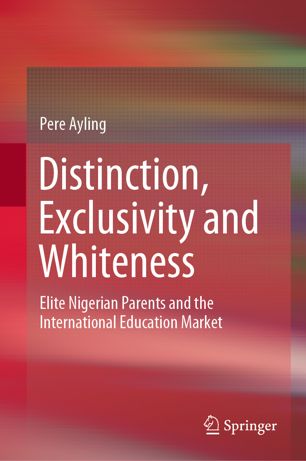

Most ebook files are in PDF format, so you can easily read them using various software such as Foxit Reader or directly on the Google Chrome browser.
Some ebook files are released by publishers in other formats such as .awz, .mobi, .epub, .fb2, etc. You may need to install specific software to read these formats on mobile/PC, such as Calibre.
Please read the tutorial at this link: https://ebookbell.com/faq
We offer FREE conversion to the popular formats you request; however, this may take some time. Therefore, right after payment, please email us, and we will try to provide the service as quickly as possible.
For some exceptional file formats or broken links (if any), please refrain from opening any disputes. Instead, email us first, and we will try to assist within a maximum of 6 hours.
EbookBell Team

4.4
92 reviewsThis book offers unique insights into elite Nigerian parents’ engagement with, and use of, the international secondary education market as they attempt to retain their social standing - via their children - under today’s shifting global conditions.
Throughout, the book tackles two important, albeit uncomfortable questions: Why does whiteness hold the highest possible value in postcolonial societies such as Nigeria? And, more importantly, why do black people accept the hegemonic discourse that West/white is best?
Combining the theoretical frameworks of Pierre Bourdieu and Frantz Fanon, the book reveals ‘Whiteness’ as a highly valuable form of cultural and symbolic capital that plays a crucial role in the formation of, and struggle for, elite status and distinction in modern-day Nigeria. Drawing on rare qualitative data sets along with postcolonial literatures, the book reveals how British whiteness is used by those working at and for British private schools in Nigeria (BPS-NIG) as an informal but powerful mechanism of ‘quality’ control, and in constructing the image of ‘world-class’ educational establishments.